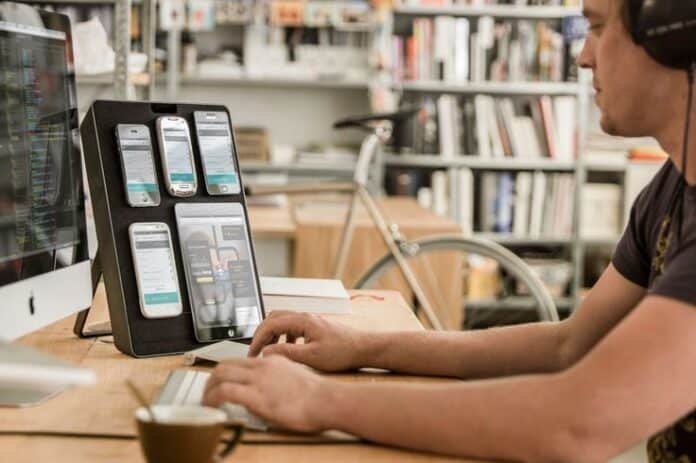Today’s fiercely competitive retail market begs for the best business technology. Automation, including artificial intelligence (AI) and robotic process automation (RPA), has improved retail management. But retailers face many challenges. These include:
- Managing inventory and supply chains
- Dealing with system failures at the point of sale
- Addressing security breaches
- Meeting regulatory compliance
What’s more, giving customers a seamless shopping experience across multiple channels is no easy task. Indeed, it can be overwhelming due to the complexities of integrating technology.
Step forward retail application testing. It lets you create a flawless experience for your customers. From automated supply chains and strengthened security to bedding in new features, retail app testing delivers. It can even ensure a personalized experience for your customers.
Boosting sales is the ultimate aim for retailers. But this goal hinges on delivering great customer experience (CX). In this blog, you’ll learn how robust retail app testing lets you achieve both.
Achieving better business outcomes
Retail testing plays a crucial role. It helps to ensure better business outcomes. Testing helps to improve customer satisfaction, boost revenue, and protect sensitive customer data, for example.
It can also help retailers address issues before they escalate into bigger problems that impact the business.
Here are three ways retail app testing improves sales:
1.Boosts user experience
Testing helps you analyze potential functional glitches or flaws. These flaws can frustrate or confuse customers. By testing your shopping application, you can ensure that the user interface is efficient, intuitive, and easy to navigate. This leads to a better UX. It also means customers are more likely to return and make repeat purchases, as they enjoy using your app. For you, more return customers equal bigger sales.
2.Enhances performance
A retail app needs to work properly to meet customers’ expectations. Performance testing can identify any bottlenecks in the application’s speed, responsiveness, or stability. QA testing can help optimize the application’s performance. This leads to reduced load times and makes it more responsive. Customers are more likely to buy from a retailer with a reliable and efficient app. This leads to increased sales for the business.
3.Increases security
Retail apps store sensitive customer data, like personal and payment details. Any breach of security can result in the loss of customer trust. It can even damage the business’s reputation.
Security testing analyzes vulnerabilities in the application. This helps you stop the bad guys and prevent unauthorized access or data breaches. And if customers know that your app is secure, they’re more likely to trust and continue shopping with you. This leads to better sales.
Five testing best practices to boost sales
Retail businesses rely on digital applications to drive sales and enhance customer engagement. But it’s essential to follow testing best practices to ensure that your apps function correctly. These practices help you find and resolve issues early on, preventing costly downtime. This ensures your shopping apps meet customer expectations.
Here are five best practices for retail application testing. Follow these and you’re almost guaranteed to boost your sales figures:
1.Test continuously
Integrate testing throughout the development process. QA experts should conduct frequent testing cycles. This helps to catch issues early and avoid costly rework later.
2.App performance testing
Performance testing lets you check the performance of your retail app. It helps you analyze its efficiency and ensure that it works well. Do load testing as well, and you will identify issues that may arise under heavy user loads.
3.Automate testing
Test automation speeds up the testing process and increases efficiency. By repeatedly running these tests you can identify and fix issues before they impact the user experience.
4.Leveraging user feedback
User feedback provides valuable insights into the customer experience. Incorporate user feedback into the testing and development process to identify issues that you may not catch through testing alone.
5.Multi-device testing
Customers use a variety of devices. These cover different screen sizes, operating systems and browsers. QA testing experts should test your retail app on these various devices. This will ensure its effectiveness and efficiency. This testing practice can lead to a positive user experience across all platforms.
To conclude
Every retail business relies on its customers and wants to keep their trust. Giving them a flawless digital shopping experience through your retail app is paramount. Great customer experience not only enhances sales but also cultivates a better brand reputation.
QA and testing services are essential for the success of your retail business. They help improve the performance and the UX of your retail app to put you ahead of your competitors.
Using QA professionals lets you deliver exceptional customer experiences that align with the expectations of today’s consumers. By embracing efficient testing practices and seeking guidance from QA experts you can set your retail business on the path to sustained success.

